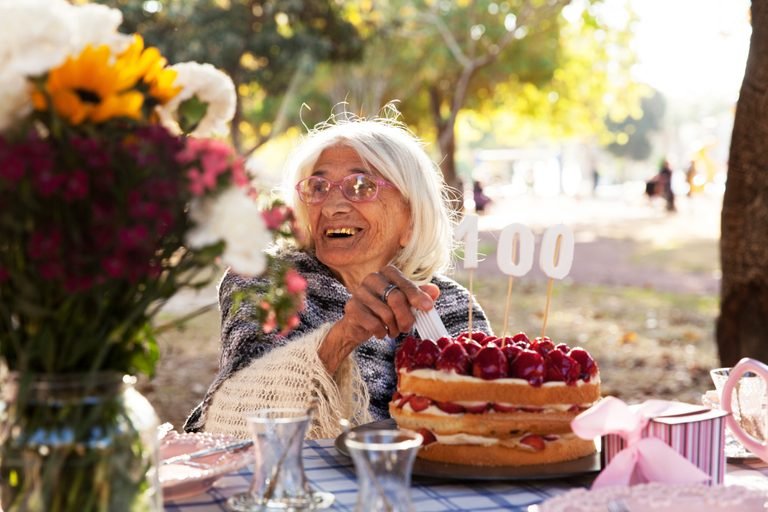5 Healthy-Aging Lessons From One of The World’s Five Blue Zones

One of the world's five blue zones
Ikaria, a Greek island in the Eastern Aegean Sea, is one of the world's five "blue zones," or the places with the highest percentage of centenarians in the world.
The other blue zones are Okinawa, Japan; Sardinia, Italy; the community of Seventh-Day Adventists in Loma Linda, California; and Costa Rica's Nicoya Peninsula.
One out of three people in Ikaria lives past the age of 90, a startling fact that has made the island the subject of a longitudinal survey published in the journal Nutrients.
Here's what that research found about people in the blue zones living past 100, plus healthy lessons to learn from people who call blue zones home.
The famous Mediterranean diet
The Mediterranean diet is native to Greece, Southern Italy, France, and Spain. It is founded predominantly on olive oil, whole grains, fruits, vegetables, legumes, nuts, seeds, fatty fish full in omega-3, moderate consumption of coffee and wine, and even more moderate consumption of red meat.
The Mediterranean diet has profound health benefits, such as the reduced risk of certain cancers and heart disease, better weight management, lower risk of Alzheimer's disease and dementia, and better cognition.
The Ikaria study found Ikariots stick to their native diet. They consume olive oil almost every day, fruits and vegetables up to five times a week, fish twice a week, and red meat once, and drink 100 to 200 milliliters of wine and 300 ml of coffee daily, while half of them also attend religious fastings.
"It is a very balanced diet full of fiber that lowers blood pressure and antioxidants that are really good for the vascular system," says Ellina Gurevich, a clinical nutritionist at FoRM Health.
"Another noteworthy thing is that they eat seasonally," Gurevich says.
Artificially ripened fruits and vegetables are often not as nutritious as naturally ripened foods, according to research published in the International Journal of Food Science.
"Seasonal and organic fruits and veggies are more nutrient-dense as they have polyphenols," Gurevich says. Polyphenols are micronutrients that are found naturally in plants; these micronutrients help manage blood pressure and sugar levels plus stave off chronic inflammation.
The power of being active, jolly, and in the moment
Alekos Pylaras, 75, a native Ikariot, had two aunts who died at 107 and 125. He himself looks much younger than his age, and believes important components of Ikariot longevity, diet excluded, are walking and enjoying life in an almost hedonistic way.
As per the Ikaria study, 85 percent of the participants exercise in the form of taking long walks or working the fields, but they make sure to take their daily, early afternoon nap nonetheless.
Ikaria also boasts dozens of local feasts, religious celebrations accompanied by wild dance, wine, and hugs till the first rays of the sun.
"The cultural norm to live mindfully by prioritizing the moment serves as the red thread that binds the findings of this study such as celebrating life with daily siestas and regular fiestas, having gratitude for what they have, and emphasizing relationships," says Sabrina Romanoff, PsyD, a clinical psychologist and professor at Yeshiva University.
"Ikariots are able to sustain a happier and healthier lifestyle because it is syntonic and in harmony with the environment, tradition, and values of inhabitants," Romanoff says.
Embracing the older zeitgeist
In the typical Ikariot yard, you will see great-grandchildren and great-grandparents tending to flowers together or enjoying Greek coffee at the table, especially in the summer. With an unusual amount of centenarians inhabiting the island, Ikaria does not put its elderly in nursing care facilities, but to the fore.
"Part of the challenge with aging is the struggle people have in adapting to and coping effectively with new life cycle stages," Romanoff says.
On the contrary, aging Ikarians hold important functions and are revered as resources to their family and the greater community, she continues.
"This likely shapes the way these individuals conceptualize themselves, each other, and guides their decisions to invest their time and energy in areas which allow them to both stay active mentally, physically, and socially, while also helping them to cope with the new challenges that come with aging."
The power of community
Most of the centenarian Ikariots are lower-income. At the same time, their marital status exceeds 85 percent in men and 80 percent in women.
Studies, like one published in the Journal of Epidemiology & Community Health, found that a successful marriage reduces cardiovascular mortality (especially in men) and has a much more positive effect on longevity than high income.
Yet in Ikaria, there is a bonding between people of the community that transcends a two-party union. Living in a place serving as an exile during the Greek Civil War and having endured abject poverty, Ikariots learned to share eggs, apples, tomatoes, and whatever they produced with everyone else.
"Can I eat five eggs when you don't have one?" Pylaras asks.
The power of arriving late to dates
The generally relaxed approach to life means Ikariots don't seem to care much about deadlines. But what if this paradoxically works in their favor?
Researchers from San Diego State University found that never arriving on time might actually have its health benefits: Chronically late-comers appear to go through life in a more laid-back, stress-free, and easygoing way, which makes them less likely to suffer from heart disease.
Reconsidering aging, or how to live like an Ikariot
Romanoff believes the Ikaria study highlights the need to reconsider compartmentalized and quick-fix solutions to aging—think of the latest diet cleansing plan.
"The Western medical model where aging is considered to primarily be the product of physical disability, molecular cell damage, increased disease risk, and eventual death leaves little agency to maximize lifespan," she says.
On the contrary, Ikaria, Romanoff says, is living proof that we should deemphasize genetics, and instead focus on environmental, social, and lifestyle changes, such as being active, allowing ourselves to rest, sharing, and appreciating time with others, and living in harmony with nature.
Even if non-Ikariots need to navigate more stressful worlds, they can always make small changes that might help them extend their lifespan.
"You can have a few meals throughout the week that have those types of Mediterranean diet components or allow yourself an hour before bed without electronics. You can give your friends a call and maybe get together over food," Gurevich says.
It's all about consistency, she continues. By taking incremental steps to make you feel happier and more energized in the holistic Ikariot way, you are laying the foundations for a long life.
The post 5 Healthy-Aging Lessons From One of The World’s Five Blue Zones appeared first on The Healthy

